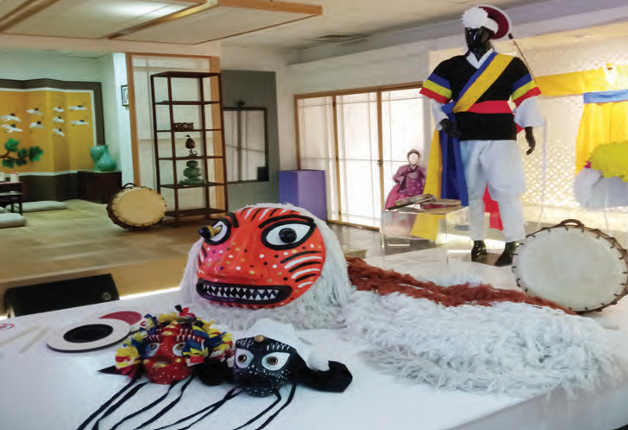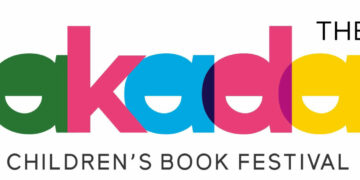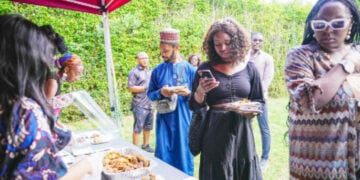Korean government has announced its openness to collaborations between Korea and Nigeria music.
The statement came during the opening ceremony of the ‘K-Pop Meets Korea Traditional Music’, a part of the 2025 Touring K-Arts Programme, of the Korea Ministry of Culture, Sports and Tourism and the Korea Foundation for International Cultural Exchange, co-hosted by the National Gugak Center, and the Korea Culture Center Nigeria (KCCN).
In line with the event’s purpose which is to ‘introduce the new artistic attempts created when K-Pop and Korean traditional music meet within the flow of the Hallyu (rising global popularity of Korean culture)’, the center aims to highlight to K-fans in Nigeria, how contemporary Korean artistes have successfully incorporated and promoted traditional Korean music into K-Pop.
However, the center also noted government’s plans to enhance cultural collaboration between Nigerian and Korea, through – one, the introduction of Korea traditional music (instruments & traditional music symbols) into Nigerian Afrobeats; two, the introduction of Nigeria traditional music to Korea, and the promotion of (music) cultural exchanges between Korea and Nigeria.
In the past decade, K-Pop and Afrobeats have witnessed a rise in global popularity, with both amassing a huge number of fans abroad. Popular K-Pop bands like BTS and Blackpink have featured Korean traditional music instrument and musical elements like traditional masks, and referenced traditional functional music practices like the Yeonhui largely associated with agricultural rituals that prayed for good harvests and blessings.
Thus, it is natural for Korea to extend the pursuit of such ‘new artistic attempts’ in the fusion of Nigeria’s popular music – Afrobeats with the Korea traditional music, and the introduction of Nigerian traditional music to Korea.
There has been zero crossover between Nigeria and Korea music until Paradice a young Korean artiste who encounter and dabble in Afrobeats led to a collaboration with a Nigerian singer Bima. Their single ‘Go Go Go’ hit 11 million likes on YouTube a week post its release. Previous collaborations simply had professional drummist, like Ozioma who via a months-long cultural exchange sponsored by the Korean government studied Jang (Korean drum) and is presently operating a center where he facilities local and Jang drums lessons and drums orchestration in Lagos, Nigeria.
Today, with K-Pop as the world’s first contact with Korea, Korean government via its cultural institutions such as the Korea Culture Centers (located in 35 countries across the world), the National Gugak Center – responsible for the preservation and promotion of traditional Korean music and music instrument, and the Korea Foundation for International Exchange is actively promoting other aspects of Korean culture, including Gugak (Korea traditional music).
For KCCN, the exhibition, the first of its kind focusing on Korean traditional music, is no mean feat.
“The distance between our two countries has been a major challenge towards fostering cultural exchanges. To host this exhibition is not easy,” said KCCN Event Manager Yunjin Lee.
“Honestly, as a center, we are focused on bringing Korean artistes to Nigeria. Back in the day, this was not even possible,” she continued.
“However, we are open to collaborative suggestions too,” said Lee in response to the center’s efforts to fostering collaborations between Korea and Nigerian artistes.
While the center has no budget directed towards collaborative projects between Korea and Nigeria artistes, Lee said, it can ‘take up the role of connecting such projects to the relevant institutions.’
“We cannot guarantee it, but we are here for that, and that’s why we are located in Nigeria.”
“As KCCN, we are promoting Korean traditional music to Nigeria, but also, we hope that there will be more opportunities for Nigerian traditional music to be introduced to Korea. We hope the exhibition will spark your curiosity, conversation and cultural connection,” said KCCN Director, Jeon Ju Ho.
The ‘K-Pop Meets Korean Traditional Music’ – features, a traditional music instrument and performance costumes, and the video installation highlighting their ties to Korean culture. The three-part music instrument exhibit, include a partition featuring Korean masks (including the lion masks), fur-skin drums and costume feature in cultural performances that satirize the lifestyle of the noble class, and the miseries of the common man. The second partition features elegant and decorative drums, standing gong, flute, cymbals and performers garb, that makeup the palace entertainment centuries past. The third and final partition hosts the traditional string instruments that accompany music and poetry renderings of the entertainment clubs for Korean noblemen similar to the salon culture of 18 to 19th century Europe.
The exhibition is open from June 23 to August 15, at the KCCN Abuja.





